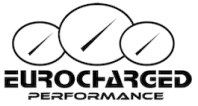Results 51 to 59 of 59
-
06-30-2014, 06:03 PM #51
 Member
Member





- Join Date
- May 2011
- Posts
- 168
- Rep Points
- 219.9
- Mentioned
- 3 Post(s)
- Rep Power
- 3
-
06-30-2014, 09:37 PM #52
 Member
Member








- Join Date
- Feb 2011
- Posts
- 1,658
- Rep Points
- 2,144.2
- Mentioned
- 12 Post(s)
- Rep Power
- 22
This += 10000... I REALLY want to love the car, and kinda do - but I just have a feeling that lag is going to kill me in comparison with what I am used to. It's not going to feel like I am driving something "special" or "different" from say a Corvette (doesn't have the response of an M3, not even close)... These are the things that made the M3 special.

I will definitely test drive it, and heck - might buy one someday, but will never rid myself of the S65. Ever.
-
06-30-2014, 09:43 PM #53
 Member
Member








- Join Date
- Feb 2011
- Posts
- 1,658
- Rep Points
- 2,144.2
- Mentioned
- 12 Post(s)
- Rep Power
- 22
I understand what you are saying, but it's really not the same. A LOT of guys who race their car will not go FI simply because you cannot balance the chassis with the throttle mid-corner as easily as you can with a NA car (especially one with 8 throttle bodies, and insane throttle response)... Formula One (before the age of turbos), and all major racing companies know this - it's a known fact that NA is more consistent; it also allows the drive to be more "one" with the car, and know exactly how much torque to dole out with the right foot. A millimeter of throttle movement equals X torque - immediately. In the middle of the corner, knowing that is important - and you just "don't" with a turbo. I get what you are saying though - it's just not something that is important to most people. I drive my car extremely hard - and can keep it at it's very limit with the throttle. Driving say, a 335i, I wouldn't even attempt it without owning and knowing the car for a long time. The M3, you can do this right off the showroom floor if you can drive a car. It's that much different IMO.
Oh, shoot - and re: the P1 (specifically) they fill in the "torque" gap between the actual power pulses of the cylinder - and also fill in the torque void from the motor (turbo lag) using electricity. They figured out how to do it right. I can't wait until all the other companies "do it right" - then it's time to go turbo all the way.Last edited by inlineS54B32; 06-30-2014 at 09:46 PM. Reason: left = right :)
-
06-30-2014, 09:47 PM #54
 Member
Member








- Join Date
- Feb 2011
- Posts
- 1,658
- Rep Points
- 2,144.2
- Mentioned
- 12 Post(s)
- Rep Power
- 22
Here's an excerpt (sorry, a bit off topic)
The electric motor does far more than just add extra ultimate power and torque. The instant response of the electric motor provides sharper throttle response that is normally associated with a normally aspirated motor. This is especially beneficial when mated to a petrol engine using large turbochargers. ‘It’s particularly useful just after gear shifts to “fill in” the torque gap when the turbos are responding,’ says Chief Test Driver Chris Goodwin.
A further benefit is that the electric motor can provide faster upshifts. This is achieved by the electric motor providing negative torque, which makes the engine revs drop as quickly and efficiently as possible to the required engine speed for the upshift. The use of an electric motor, and an all new pressure charging system, enables the McLaren P1™ both to have sharper throttle response and more top-end power – the perfect combination for high performance.
-
06-30-2014, 11:15 PM #55
well bmw isnt about to start putting electric motors in their M cars as that "might interfere with the i brand"
-
07-01-2014, 01:40 AM #56
 Member
Member


- Join Date
- Sep 2012
- Location
- Brisbane, Australia
- Posts
- 3,494
- Rep Points
- 1,794.0
- Mentioned
- 73 Post(s)
- Rep Power
- 18
I can understand that, but the simple thing is, they won't be anywhere near as fast as those who have sacrificed a that response/balance.. You get used to how long the car takes to do what you want it to, and adjust, to the point where it doesn't matter.
i don't really agree with the 'all major racing companies know this' bit.. F1 is a bad example, they always lag behind the times.. plus, they WERE turbo (remember back in the 80's?), it just so happened they had a little too much power at the time and it was killing people hahah.. WRC, indy, LMP.. even, i believe JGTC.
You're right again on the P1... i don't know about the between the power pulses,since a V8 is ALWAYS producing power though. The electric motor must make it insanely responsive though. being able to provide at least SOME power until the turbos kick in, and i can imagine they've tuned it to feed on the power predictably for said balance.
I was more talking about the response on the 12C/650S though.. which is fairly obviously held back a bit.
Don't get me wrong, i LOVE the response of an NA car.. NA with mechanical throttle + ITB's more to the point... but the speed/tunability/power/etc. etc. of a turbo is simply more appealing to me. I used to have friends that swore up and down they would NEVER go turbo, NA for life etc... even they've changed their minds.boop
-
07-01-2014, 07:30 AM #57BRAND NEW IN BOX 991.2 standard/non-pse SPW cat bypass pipe for sale - $899 shipped
New generic 991.2 PSE bypass pipes - $499 shipped
-
07-01-2014, 02:07 PM #58
 Member
Member








- Join Date
- Feb 2011
- Posts
- 1,658
- Rep Points
- 2,144.2
- Mentioned
- 12 Post(s)
- Rep Power
- 22
re: formula 1, yes they were turbo - this is true. I would never say that F1 is behind the times, nearly all the technology we see on streetcars today stems from motorsport, and furthermore from F1. It is the epitome of motorsport - things like KERS, dynamic aero, etc. - all play parts in today's supercar. They lowered boost pressures in the late 80s, and also switched to NA - because it was "too dangerous", but also the cost/expense was getting absurd. And yes, this is true that most car formulas used turbochargers back in the 70s to late 80s, but this was to push development (again, production cars follow technology developed for racing) for economy during the oil crisis. It wasn't for a lack of power or because it was superior to NA, it was for purposes of emissions and consumption. That's my understanding of it at least. This is why F1 returned to using turbos today - for purposes of driving new technology to lower emissions and lower fuel consumption. It's come full circle.
re: the V8, good point - output torque is never negative; however, that doesn't mean impulse is zero (or torque output remains constant)... There is still a moment where the torque is less than the average, and a moment when it is higher than the average. This cannot be "stopped" in an Otto ICE - there will never be an uninterrupted and constant valued "stream" of torque. I am assuming what is meant is torque void from turbo lag, or any other reason? Not 100% sure... I am nearly certain that I read that it literally filled the torque dips and made it nearly linear - but I might be wrong.
re: yes, you are right - it's something a driver can acquire regardless of NA or FI. It's just MUCH easier (and extremely predicable with temperature, conditions, etc) with NA - this is why most drivers would consider NA powerplants to be "superior" for racing. Yes, there are reasons for and against, but out of all I have read in my life, this has been said to be the case from multiple race car drivers multiple times - and haven't heard the opposite. I get it, and understand the reasons for going turbo, but the power increases and ease of tune doesn't come without penalty - and that penalty is underrated in my opinion...
I am sure I will own a turbo car, I will almost guarantee it. I always wanted a P-car, and have loved the Turbo since I was young. I am sure someday, I will own one - or something with a turbo. No doubt about it. For me, I don't absolutely need the NA "advantage" described above - but that doesn't mean there shouldn't be an option for people that do. That's my gripe.
It's a positive and negative - the "challenge" of driving a F1 turbo car is much greater than NA.
-
07-01-2014, 05:12 PM #59
 Member
Member


- Join Date
- Sep 2012
- Location
- Brisbane, Australia
- Posts
- 3,494
- Rep Points
- 1,794.0
- Mentioned
- 73 Post(s)
- Rep Power
- 18
I actually see F1 as the pinnacle only for one-2 years out of every .. 5-10? they stick with the incredibly restrictive rules after finally catching up, then restrict the cool stuff teams try... i'm interested to see whether the split turbo is allowed after this season, or if they rule it out haha
for at least the decade i've been relatively actively interested in motorsports... i'd say LMP cars have more relevance to road cars. they're far more technologically advanced than formula 1 cars for the most parts.. they even have that 'insane prototype' garage to encourage really weird stuff.
I know street car tech trickles down from motorsport 99% of the time, I just see LMP as being the biggest innovator lately.
Actually, being a huge fan of timeattack race cars, they're coming further and further to the front of motorsports innovation every year. I don't think it will be too many years where from a technology/innovation perspective, the significantly less restricted format could start showing it's potential well.
the only thing re: P1 torque between power strokes fill i'm still questioning.. can the power from the electric motor vary that rapidly+responsively? even at only 2000rpm, the V8 motor is producing a power stroke every what.. less than 10ms?.. I mean, we ARE in the future, so i'm just curious haha.
And yeah, i agree with the "but that doesn't mean there shouldn't be an option for people that do. That's my gripe." - there will hopefully always be a place for NA race series... hopefully by going corn fuel, they can stay alive as well, like the V8 supercars.boop





 Quote
Quote













Hey...
Let's point and laugh at Slaphappypal